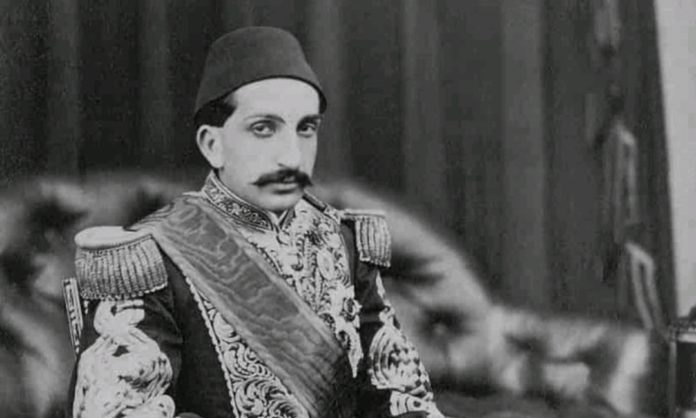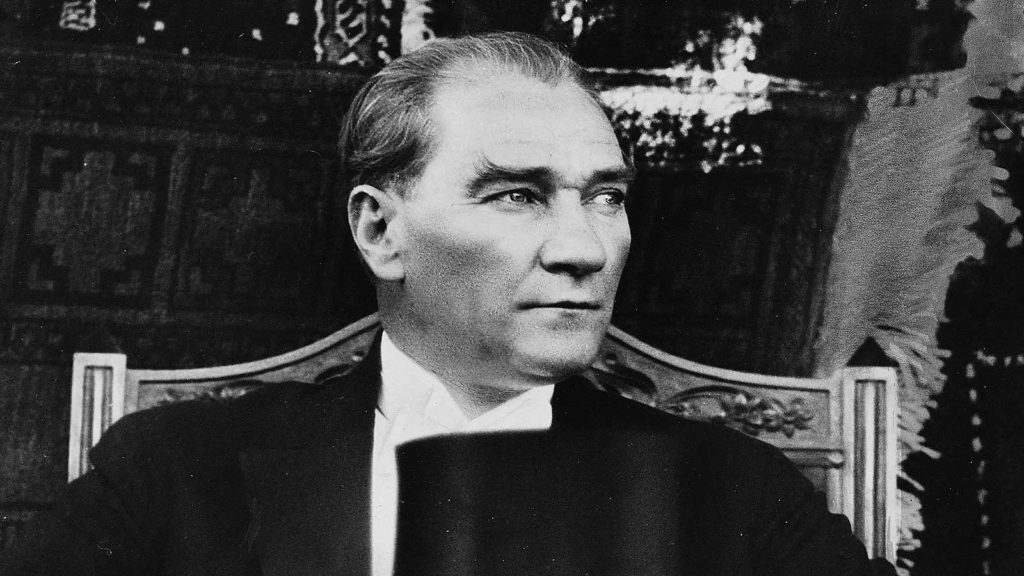
Abdul Wahid of Hizb ut-Tahrir commemorates the life of the great Ottoman Sultan Abdulhamid II – the defender of the Prophet (pbuh) and Palestine – who died on February 10, 1918.
Abdulhamid II (may Allah have mercy on him) was historically one of the great leaders of the Muslim Ummah; certainly, no leader after him measures even close. He was a defender of the Prophet Muhammad (pbuh) and Palestine and tried to revive the Ottoman Empire in its dying days.
Abdulhamid, like Ottoman sultans before him since Selim I, was recognised as the Khalifah – i.e. the successor to the Prophet (pbuh) – in ruling in almost unbroken succession since Abu Bakr al Siddiq (may Allah be pleased with him) first assumed that position, fulfilling an obligation on the Ummah.
Whilst there were three caliphs after Abdulhamid, all had their political authority severely curtailed with diminishing political influence. They were just figureheads at the time of the abolition of the Khilafah in 1924 by the extreme secular regime of Mustafa Kemal.
In December 1876 Abdul-Hamid II adopted a written constitution for the Ottoman state which explicitly referred to the Caliph’s role as protector of the Islamic faith, as well as the political ruler: “the Sultan, under the title of ‘Supreme Caliph,’ is the protector of the Muslim religion. He is the sovereign and padişah (emperor) of all the Ottomans.”
He was recognised formally as Caliph within the Ottoman state (which included modern-day Turkiye, Iraq, Palestine, Syria, the Hejaz, the Balkans, and much of North Africa) – as well as by Muslims outside the Ottoman territories – for example in India, Malaysia, as well as by Muslims in the West and within China.
He also appointed Shaikh William Henry Abdullah Quilliam (who embraced Islam in 1887 and established Britain’s first mosque in Liverpool) as Shaikh-ul-Islam for the British Isles and Dominions; and Mohammed Alexander Russell Webb as Honorary Consul in New York.
Subscribe to our newsletter and stay updated on the latest news and updates from around the Muslim world!
A competent politician in difficult circumstances
Abdulhamid II was born in September 1842 in Istanbul and ascended to the throne following the deposition of his brother Murad on August 31, 1876.
The Ottoman state he inherited was in debt and under severe pressure from the rise of the British, French and Russian empires. Nonetheless he worked hard to set the finances on a sounder footing.
Abduhamid tried to strengthen Islamic bonds between his people and beyond, as well as the bond of Ottoman citizenry for the many non-Muslim subjects. All of this was to counter the divisive forces created when the seeds of nationalism and secularism were sowed by colonial forces from the West – causing schisms and political sedition, which colonial states later exploited.
He was very aware of the political intrigues surrounding his administration – and their British and French sponsors – which tried to subvert his efforts to bring stability. Nevertheless, he looked after the affairs of his people.
His achievements
During Abdulhamid’s term as Khalifah, he gave a sizable financial commitment to Louis Pasteur towards the establishment of the Pasteur Institute and the training of three specialists from the Ottoman state – who started work on a rabies vaccine three years after its development at the Pasteur Institute.
He also embarked upon constructing the Hejaz Railway to link Istanbul with Madinah, via Damascus (and a branch to Palestine) for the sake of pilgrims. And he made substantial improvements to the Haramain during his era.
Unlike rulers today, Abdulhamid II was the last Muslim ruler to defend the honour of the Prophet of Islam in an effective way – that actually stopped the insults.

In 1889, the French writer Henri de Bornier wrote an anti-Islamic play called “Mahomet.” The playwright tried to defend his position with excuses, or by agreeing that it would not be shown in French-occupied Algeria and Tunisia. The French government tried to reassure the Ottoman ambassador that this was not an attack on Islam. Yet Abdulhamid’s government applied so much diplomatic pressure that the French eventually banned it within France itself!
In 1901, the Zionist leader Theodor Herzl offered the Ottoman Khilafah huge sums of wealth, which would have sorted their debt crisis, in exchange for settling Jews in Palestine.
Abdulhamid’s response was uncompromising, even winning Herzl’s respect: “I cannot sell even a foot of land, for it does not belong to me, but to my people. My people have won this empire (i.e. the Khilafah) by fighting for it with their blood and have fertilised it with their blood. We will again cover it with our blood before we allow it to be wrested away from us… The Turkish Empire (i.e. the Khilafah) belongs not to me, but to the Turkish people (i.e. the Ummah). I cannot give away any part of it. Let the Jews save their billions. When my Empire is partitioned, they may get Palestine for nothing. But only our corpse will be divided. I will not agree to vivisection.”
An international statesman with political foresight
As an international statesman Abdulhamid was considered extremely astute. He steered the Ottoman state successfully through many international crises brought upon it to destabilise it – avoiding falling into many traps laid for him.
One of Europe’s greatest statesmen, Otto Von Bismark, was once reputed to have said of Abdulhamid: “Of all the intelligence in Europe, 90% is in Abdulhamid, 5% in myself, and 5% in everyone else.” Similarly Kaiser Wilhelm of Germany is reported to have said: “I have learned politics from Abdulhamid.”
But his brilliance ultimately did not save him from the intriguing of powerful, secular, reactionary elements in the state.

The pro-Western Young Turks movement deposed Abdulhamid in 1909 and his half-brother Reshad Efendi was proclaimed as Sultan Mehmed V.
The ex-sultan was sent into captivity in Salonica but in 1912, when the city fell to Greece he was returned to captivity in Constantinople. He spent his last days studying, practicing carpentry and writing his memoirs in custody at Beylerbeyi Palace in the Bosphorus, in the company of his wives and children, where he died on 10 February 1918. He was buried in Istanbul.
The Prophet (pbuh) said: “One day’s life under a just Imam (Khaleefah) is better than sixty years of worship.” (Bayhaqi, Tabarani).
We, more than most, can appreciate this when we have lived over a century without a just Islamic system.
When one looks at the efforts of Abdulhamid in challenging circumstances over more than 30 years – conspired against internally, pressured and vilified externally, offered temptations of money to concede – one can see that his devout Islamic personality, steadfastness, perseverance and efforts to serve Islam and his people warrant our remembering him in our prayers, and learning lessons from his life.
Abdul Wahid is currently the Chairman of the UK Executive Committee of Hizb ut-Tahrir in Britain. He has been published on the websites of Foreign Affairs, Open Democracy, the Times Higher Educational Supplement and Prospect Magazine. You can follow him on Twitter @AbdulWahidHT.






















